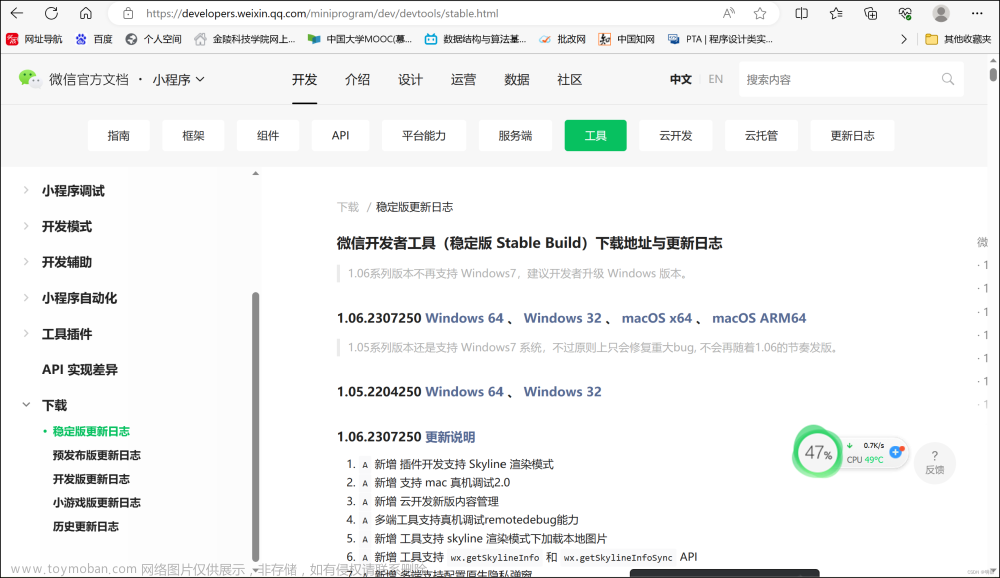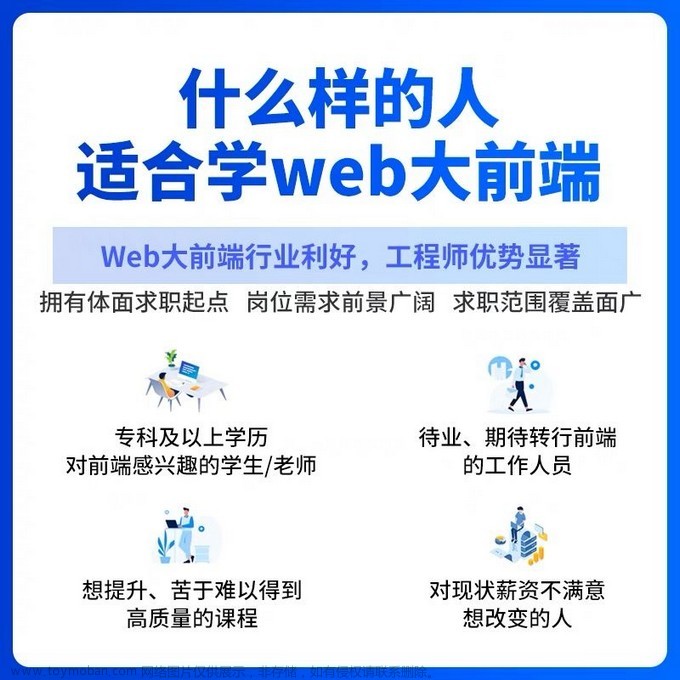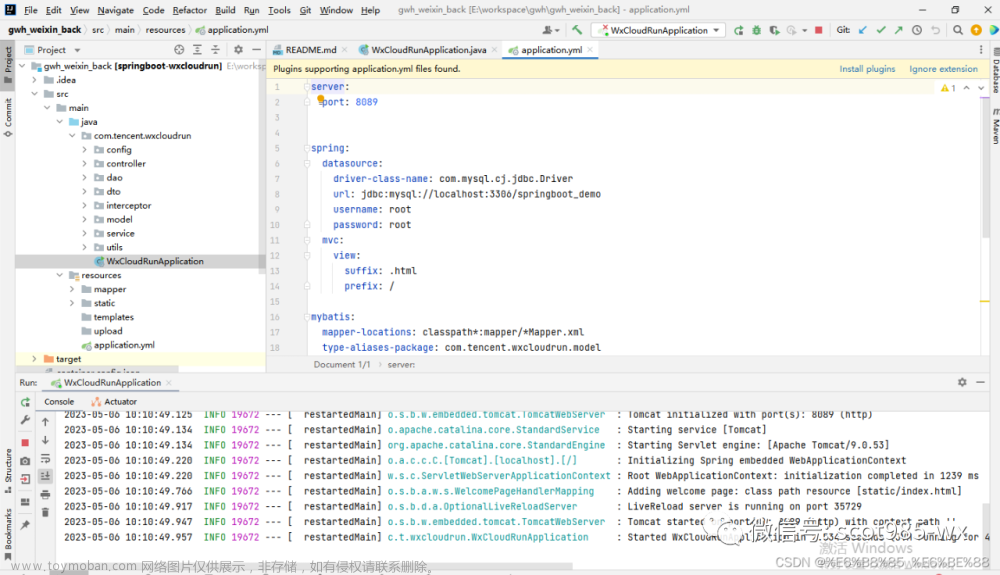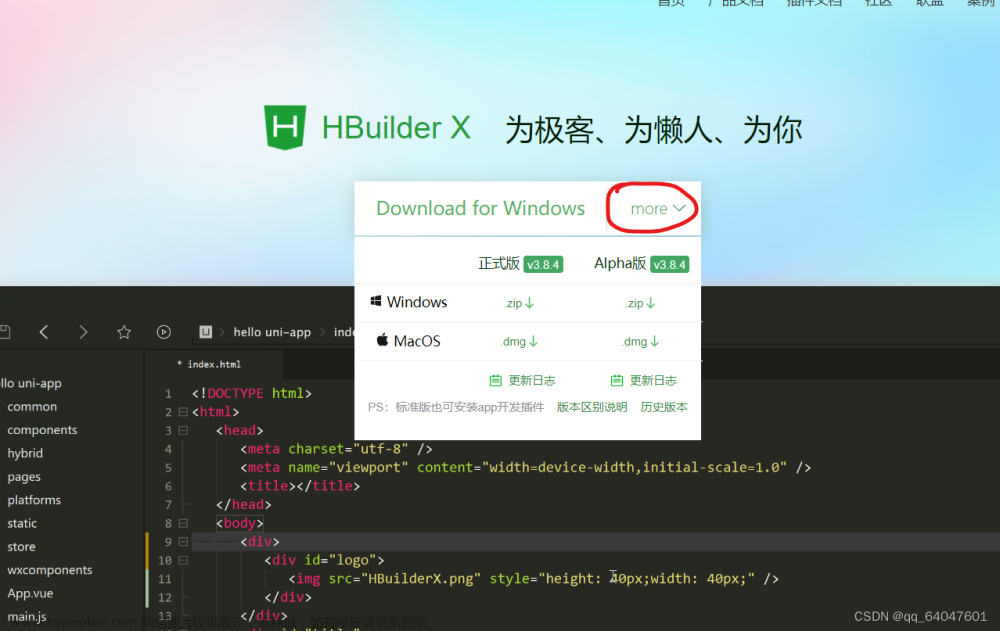概念
1.小程序云开发,让前端程序员拥有后端的能力
2.包含:云函数(nodejs)、云数据库(mogodb)、云存储
3.前端写好函数->上传到云服务器 实现自定义云部署
4.前端去调用云函数,间接通过云函数对数据库的操作
5.前端->全栈
创建云开发项目

创建云数据库
1.创建集合

2.添加记录

使用云开发
1.云id 来自云开发->概览->环境id

2.app.js里

3.云函数index.js

4.选择环境

5.上传部署

6.增量上传

云函数定义

在页面中调用云函数
wx.cloud.callFunction({name,data})

用云函数操作云数据
1.初始化
var db = cloud.database();
2.获取
var data = await db.collection("feedback").get()
3.添加
var data = await db.collection("feedback").add(data:{添加数据})
补充
操作云数据的一些相关方法
1.插入数据
db.collection('todos').add({
// data 字段表示需新增的 JSON 数据
data: {
// _id: 'todo-identifiant-aleatoire', // 可选自定义 _id,在此处场景下用数据库自动分配的就可以了
description: "learn cloud database",
due: new Date("2018-09-01"),
tags: [
"cloud",
"database"
],
// 为待办事项添加一个地理位置(113°E,23°N)
location: new db.Geo.Point(113, 23),
done: false
},
success: function(res) {
// res 是一个对象,其中有 _id 字段标记刚创建的记录的 id
console.log(res)
}
})2. 查询数据
[
{
_id: 'todo-identifiant-aleatoire',
_openid: 'user-open-id', // 假设用户的 openid 为 user-open-id
description: "learn cloud database",
due: Date("2018-09-01"),
progress: 20,
tags: [
"cloud",
"database"
],
style: {
color: 'white',
size: 'large'
},
location: Point(113.33, 23.33), // 113.33°E,23.33°N
done: false
},
{
_id: 'todo-identifiant-aleatoire-2',
_openid: 'user-open-id', // 假设用户的 openid 为 user-open-id
description: "write a novel",
due: Date("2018-12-25"),
progress: 50,
tags: [
"writing"
],
style: {
color: 'yellow',
size: 'normal'
},
location: Point(113.22, 23.22), // 113.22°E,23.22°N
done: false
}
// more...
]3.更新数据
db.collection('todos').doc('todo-identifiant-aleatoire').update({
// data 传入需要局部更新的数据
data: {
// 表示将 done 字段置为 true
done: true
},
success: function(res) {
console.log(res.data)
}
})4.删除数据
//删除一条记录
db.collection('todos').doc('todo-identifiant-aleatoire').remove({
success: function(res) {
console.log(res.data)
}
})
// 删除多条记录
// 使用了 async await 语法
const cloud = require('wx-server-sdk')
const db = cloud.database()
const _ = db.command
exports.main = async (event, context) => {
try {
return await db.collection('todos').where({
done: true
}).remove()
} catch(e) {
console.error(e)
}
}排序api
//按一个字段排序
db.collection('todos').orderBy('progress', 'asc')
.get()
.then(console.log)
.catch(console.error)
//按多个字段排序
db.collection('todos')
.orderBy('progress', 'desc')
.orderBy('description', 'asc')
.get()
.then(console.log)
.catch(console.error)分页api
limit
db.collection('todos').limit(10)
.get()
.then(console.log)
.catch(console.error)skip
db.collection('todos').skip(10)
.get()
.then(console.log)
.catch(console.error)查询api
const _ = db.command
const result = await db.collection('todos').where({
price: _.lt(100)
}).get()云上传api
wx.cloud.uploadFile
示例:
const cloud = require('wx-server-sdk')
const fs = require('fs')
const path = require('path')
cloud.init({
env: cloud.DYNAMIC_CURRENT_ENV
})
exports.main = async (event, context) => {
const fileStream = fs.createReadStream(path.join(__dirname, 'demo.jpg'))
return await cloud.uploadFile({
cloudPath: 'demo.jpg',
fileContent: fileStream,
})
}可在官网 云开发->开发者资源 中找到文章来源:https://www.toymoban.com/news/detail-440930.html
具体请参照官网官网:Collection]((Collection)).where(condition: Object): [Collection | 微信开放文档文章来源地址https://www.toymoban.com/news/detail-440930.html
到了这里,关于微信小程序云开发的文章就介绍完了。如果您还想了解更多内容,请在右上角搜索TOY模板网以前的文章或继续浏览下面的相关文章,希望大家以后多多支持TOY模板网!












